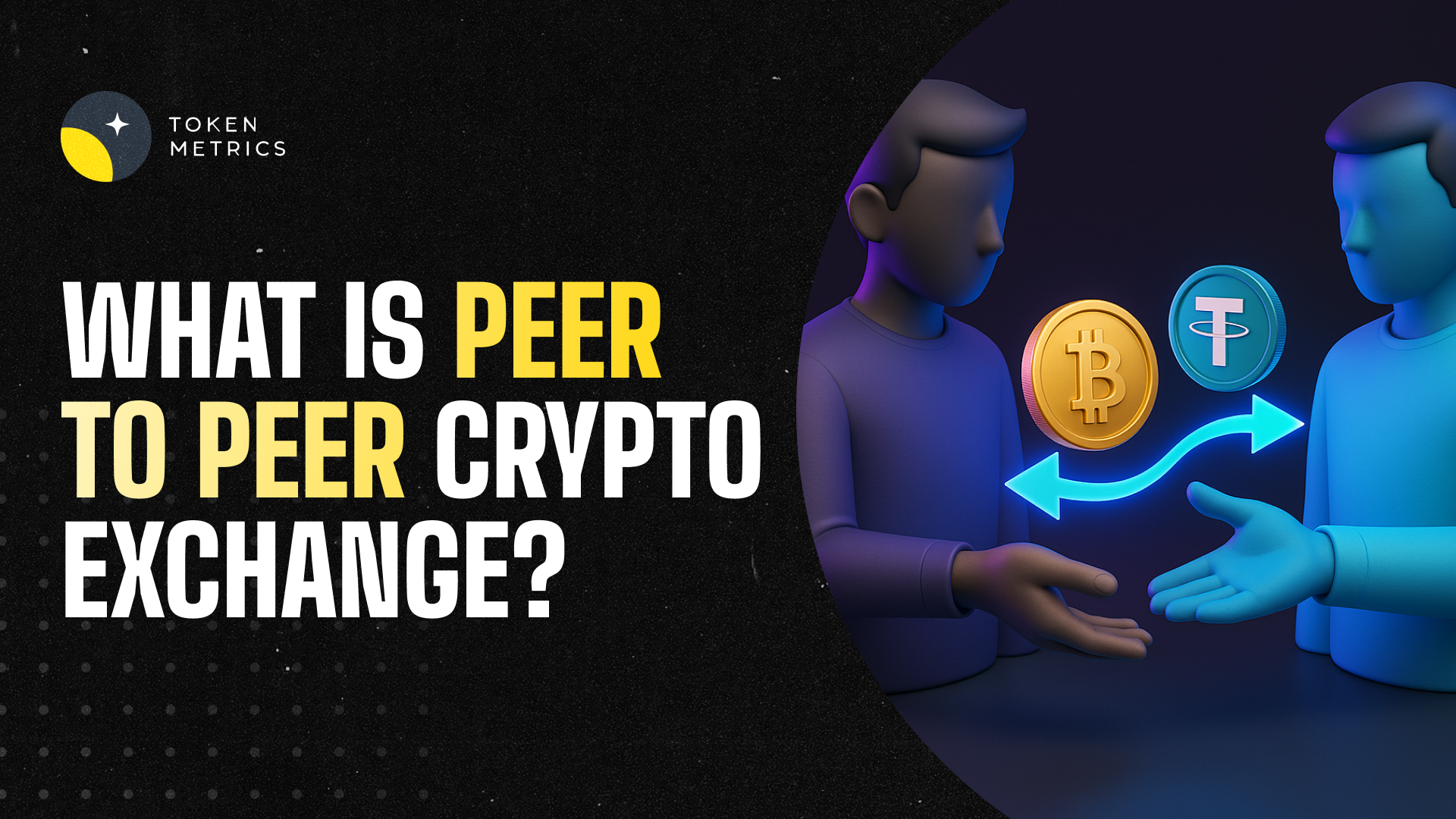
Is Bitcoin Safe? - Complete Analysis

In the crypto world, Bitcoin stands as the pioneer, sparking interest and evoking conversations worldwide. But even after more than a decade since its inception, a pressing question persists: "Is Bitcoin safe?"
In this detailed analysis, we'll dive deep into the factors affecting Bitcoin's safety, weigh its risks and benefits, and provide a comprehensive perspective for both novices and seasoned investors.
Bitcoin's Fundamental Technology
Immutable Records - One of the cornerstones of Bitcoin's safety is its underlying technology: the blockchain. This decentralized digital ledger ensures that every transaction is transparent, immutable, and secured against tampering.
Distributed Consensus - Being decentralized means no single entity has control over the network. Instead, Bitcoin relies on a distributed consensus, reducing vulnerabilities to malicious attacks or centralized failures.
Security Protocols and Measures
Cryptographic Security - Bitcoin employs SHA-256, a cryptographic algorithm that ensures transaction and wallet security. The design makes it computationally prohibitive to reverse-engineer transactions or hack into wallets.
Wallet Safeguards - Hardware wallets, cold storage, multi-signature options, and regular software updates have greatly elevated the safety level for Bitcoin users, enabling them to store and transact with reduced risks.
Security Breaches with BTC
Despite its robust system, Bitcoin hasn't been immune to challenges.
Exchange Hacks - Notable incidents, like the Mt. Gox hack in 2014, has led to massive financial losses. However, it's crucial to differentiate between the security of Bitcoin's protocol and that of individual platforms or exchanges.
Phishing and Scams - While the Bitcoin network remains secure, individual users have fallen prey to phishing attempts and scams, emphasizing the need for vigilance and education.
Contemporary Challenges
Quantum Computing - There's been chatter about quantum computers' potential to disrupt Bitcoin's cryptographic safeguards. However, at present, practical quantum machines capable of such feats remain in nascent stages. The crypto community is also actively researching quantum-resistant algorithms.
Regulatory Scrutiny - Many governments are exploring regulatory frameworks for cryptocurrencies. While this adds legitimacy to the crypto space, there are concerns about potential overregulation stifling innovation.
Is Bitcoin a Safe Investment?
Assessing Bitcoin's safety as an investment hinges upon one's perception of security. The volatile nature of Bitcoin cannot be denied.
For instance, in 2022, Bitcoin experienced drastic price fluctuations, plummeting from nearly $48,000 to lows around $16,000, and later stabilizing near $26,000. Such dramatic shifts might deter traditional investors.
Yet, Bitcoin's dynamic is evolving. As Ryan Burke from M1 observes, Bitcoin is melding with mainstream financial avenues, witnessing increased retail and institutional engagement. It's steadily positioning itself as a modern-day alternative asset, analogous to renowned tech giants.
From a technological standpoint, Bitcoin's framework is robust. However, notes Daniel Rodriguez of Hill Wealth Strategies, it lacks true anonymity. The public nature of Bitcoin addresses, combined with potential tracking by hackers, poses risks.
Fundamentally, your Bitcoin's safety lies in your wallet's security. Misplace the password or if it's compromised, your Bitcoin could be jeopardized.
Reference - https://www.forbes.com/advisor/investing/cryptocurrency/is-bitcoin-safe/
Factors that can Influence Bitcoin Price
The valuation of Bitcoin, the pioneering cryptocurrency, is shaped by an intricate tapestry of elements, extending beyond the simple dynamics of market demand and supply.
Market Sentiment: The overarching psychological mood of investors, traders, and the wider public can heavily influence Bitcoin's price. News of technological advancements can spur price surges, while incidents like security breaches can induce declines.
Regulatory News and Decisions: The approach regulators take towards Bitcoin, be it permissive or restrictive, can precipitate significant price shifts. A country's decision to endorse or prohibit Bitcoin trading can be particularly impactful.
Technological Changes and Innovations: Enhancements to the Bitcoin network, such as the Lightning Network or hashing algorithm modifications, can influence its market valuation.
Bitcoin Halving: Occurring approximately every four years, halvings cut the rewards miners receive by half, affecting the rate of new Bitcoin entering circulation. Historically, halving events have correlated with substantial price movements due to the interplay of reduced supply and sustained demand.
Macroeconomic Factors: Variables like global economic stability, inflation trends, and financial downturns can dictate how investors perceive Bitcoin as a potential store of value.
Supply Dynamics: With a maximum supply set at 21 million coins, the nearing of this cap, coupled with events like halvings, amplifies Bitcoin's scarcity factor, which can influence price.
Competition: The rise or recognition of other cryptocurrencies can challenge Bitcoin's market dominance and thereby affect its price.
Rewards and Risks Associated with Bitcoin
Navigating the turbulent waters of Bitcoin investment presents both tantalizing prospects and daunting pitfalls. Here's a breakdown:
Rewards:
- Unparalleled Returns: Historically, Bitcoin has showcased growth trajectories that few other assets can rival. Early adopters have reaped exponential gains, turning nominal investments into fortunes.
- Decentralization and Autonomy: As a decentralized currency, Bitcoin offers investors independence from traditional financial systems and governmental controls, positioning it as a potential hedge against economic instability.
- Portfolio Diversification: Bitcoin's often non-correlated behavior with mainstream assets allows investors to diversify portfolios, potentially mitigating risks and enhancing long-term returns.
Risks:
- Volatility: Perhaps the most significant challenge, Bitcoin's price can swing dramatically within short periods, leading to substantial losses.
- Regulatory Concerns: Globally, regulatory stances on Bitcoin vary. Adverse regulatory decisions, such as bans, can negatively impact its value.
- Security Threats: From potential exchange hacks to wallet compromises, the digital nature of Bitcoin exposes investors to cybersecurity threats.
- Lack of Consumer Protections: Unlike traditional financial systems, Bitcoin transactions are irreversible. Any mishap, be it a mistaken address or fraud, can result in permanent loss.
Safety Precautions for Bitcoin Users
As the crypto landscape evolves, so do the threats, making proactive measures essential.
Firstly, users should prioritize using reputable hardware wallets. These devices, disconnected from the internet, significantly diminish the risk of hacks.
Secondly, implementing multi-signature setups adds another layer of security; it requires multiple private keys to authorize a Bitcoin transaction, reducing single-point vulnerabilities.
Staying updated on the latest security threats and protocols cannot be overstated. With phishing attacks becoming more sophisticated, awareness is the first line of defense.
Finally, ensure regular backups of your Bitcoin wallet. A best practice is to store these backups in diverse physical locations, safeguarding against data loss due to unforeseen calamities.
Also Read - Is Bitcoin Dead?
Future Outlook for Bitcoin
The trajectory of Bitcoin's future remains a topic of intense speculation and interest. As the pioneer of the cryptocurrency movement, its adoption is steadily gaining momentum, with institutional investors and major corporations increasingly integrating Bitcoin into their financial strategies.
Technological advancements, like the Lightning Network, aim to address scalability issues, bolstering Bitcoin's potential for broader transactional use.
However, challenges lie ahead. Regulatory uncertainties across global jurisdictions and the evolving landscape of competing cryptocurrencies could influence its dominance.
Moreover, environmental concerns over Bitcoin mining may shape its future narrative. While Bitcoin's position as a store of value appears firm, its role in the broader financial ecosystem remains to be fully realized.
Frequently Asked Questions
Q1. What makes Bitcoin different from traditional currencies?
Unlike fiat currencies, Bitcoin operates on a decentralized platform without a central authority or middlemen. It is also limited in supply, making it resistant to inflation.
Q2. How do Bitcoin transactions work?
Bitcoin transactions involve a sender, a recipient, and the transfer of BTC between their respective digital wallets. Once initiated, the transaction is verified by network nodes through cryptography and recorded on the blockchain.
Q3. Is Bitcoin accepted by major retailers and businesses?
Yes, a growing number of businesses, both online and brick-and-mortar, accept Bitcoin as a form of payment. This includes major companies like Microsoft, Overstock, and several travel agencies.
Q4. How can I safely store my Bitcoin holdings?
For security, Bitcoin can be stored in hardware wallets (physical devices) or reputable software wallets with strong encryption. It's essential to keep backup copies of your wallet and use multi-factor authentication when possible.
Q5. What is the environmental impact of Bitcoin mining?
Bitcoin mining requires significant computational power, leading to concerns about its energy consumption and environmental footprint. The impact largely depends on the source of the energy used in mining operations.
Q6. How is the value of Bitcoin determined?
Bitcoin's value is determined by various factors, including supply and demand dynamics, market sentiment, regulatory news, and macroeconomic indicators. It's traded on various exchanges, and its price can vary between platforms.
Q7. Can I mine Bitcoin at home?
While Bitcoin was initially mined using home computers, the increasing complexity of the process now requires more powerful and specialized hardware, making home mining less profitable and more challenging.
Q8. What happens when all 21 million Bitcoins are mined?
Once all Bitcoins are mined, miners will no longer receive block rewards. However, they will still earn from transaction fees, ensuring that the network remains operational and transactions are verified.
Conclusion
As of now, Bitcoin remains a secure and resilient system, thanks to its robust technology and continuous community efforts. However, like any financial tool or asset, its safety is intertwined with user awareness, practices, and the evolving landscape of threats and solutions.
Always conduct due diligence, stay informed, and prioritize safety. With these steps, you'll be well-equipped to navigate the exciting world of Bitcoin.
Disclaimer
The information provided on this website does not constitute investment advice, financial advice, trading advice, or any other sort of advice and you should not treat any of the website's content as such.
Token Metrics does not recommend that any cryptocurrency should be bought, sold, or held by you. Do conduct your own due diligence and consult your financial advisor before making any investment decisions.

.svg)

Create Your Free Token Metrics Account

.png)




%201.svg)
%201.svg)


%201.svg)















.svg)




.png)